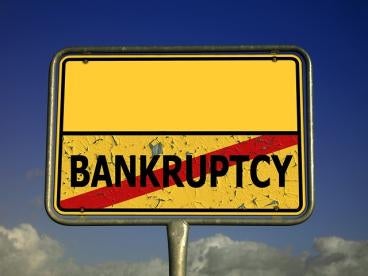Reversing the lower courts, the Third Circuit Court of Appeals has today held that, under New York law (which governs 95% of all indentures), the early repayment of indenture notes in Chapter 11 is an optional redemption requiring the payment of make-whole notwithstanding the automatic acceleration of the notes due to the Chapter 11 filing. Delaware Trust Co. v. Energy Future Intermediate Holding Company LLC (In re Energy Future Holdings Corp.), Case No. 16-1251 (5th Cir. Nov. 17, 2016).
Issues
Ignoring some minor nuances that will be discussed below, these are the three essential facts:
-
Secured note indenture includes standard provision for payment of make-whole amount upon optional redemption prior to maturity.
-
Indenture also includes standard provision that maturity of notes is automatically accelerated in bankruptcy, without specifying that make-whole amount is still payable.
-
Issuer prepays notes during Chapter 11 case.
Standard thinking before Energy Future Holdings has been that, due to the automatic bankruptcy acceleration, a subsequent repayment of notes occurs after maturity because the maturity itself has been accelerated. Therefore, the requirement for payment of a make-whole prior to maturity does not apply. This is so even when the optional redemption provision refers to “small m” “maturity” rather than the specific contractual date such as be reference to “Stated Maturity Date.”
Third Circuit Decision
The Third Circuit disagrees with the standard thinking that the automatic acceleration provision overrides the optional redemption provision and, instead, holds that the two provisions can be read in harmony. The optional redemption provision is intended to preserve the benefit of the noteholders’ bargain in committing to fixed rate notes by enabling the noteholders to receive the equivalent of their bargained-for return if prepaid in a lower interest rate environment. The automatic acceleration provision simply provides that the notes need to be paid in bankruptcy, as do all other claims, unless the Bankruptcy Code’s reinstatement provisions are effectively invoked.
Stated different, the automatic acceleration does not mandate prepayment of the notes prior to the stated maturity of the notes. Instead, it requires that the notes must be “dealt with” in the Chapter 11 case, and the debtor has the option of continuing to perform the notes through their original stated maturity via invoking the reinstatement provisions. By deciding to pay off the notes rather than reinstate them, a debtor is making an optional decision, which invokes the make-whole due upon optional redemption.
There were actually two different indentures involved, and one of them contained a reference in the acceleration provision to the payment of “premium, if any.” Prior decisions (most notably Momentive, referred to below) have interpreted this as boilerplate and held that, if payment of the specific contractual Make-Whole Amount was intended, the provision should have used the defined term rather than make a generic reference. The Third Circuit disagrees, holding that “premium, if any” “leaves no doubt” that the make-whole amount must be paid upon early payment. But even more to the point, the other indenture did not even refer to “premium, if any.” Doesn’t matter, says the Third Circuit.
The decision is 28 pages and, inevitably, more complicated and nuanced than just described. But the bottom line according to the Third Circuit is that an indenture provision referring to an optional redemption before maturity (i) refers to the contractual maturity date, (ii) is not overridden by automatic acceleration in bankruptcy, and (iii) encompasses a payment in bankruptcy because the debtor has the alternative option of reinstating the notes rather than repaying them.
Nuances
We are often asked whether it matters if notes are secured or unsecured. The Energy Future Holdings notes are secured. We do not think it matters, relying primarily on an older Second Circuit decision that, we think, remains good law. See In re United Merchants & Manufacturers, Inc., 674 F.2d 134 (2nd Cir. 1982).
The Third Circuit assumed that the debtor was solvent and, therefore, could pay all of its unsecured creditors in full without regard to also paying the make-whole amount. The Third Circuit states clearly that “we do not consider whether insolvency might have affected EFIH’s obligations.” We think it doesn’t matter, again with reference to United Merchants. A make-whole amount is a contractual entitlement, whether it can be paid in full as part of a secured claim or because the debtor is solvent, or whether it is only added to the claim of an unsecured creditor against an insolvent debtor.
Momentive is on appeal to the Second Circuit Court of Appeals. See In re MPM Silicones, L.L.C., case no. 15-1682 (2nd Cir. 2016). The appeal has been brief but not adjudicated and it is possible that the Second Circuit will disagree with the Third Circuit. No prediction here, just stay tuned!



 />i
/>i

